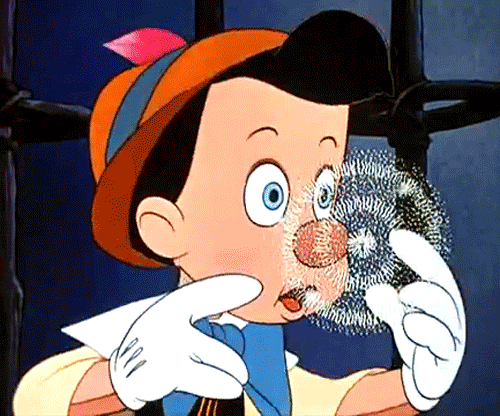How lying makes us feel about ourselves
Plus, parenting by lying
“ Emotions aren't built into your brain. They're built by your brain, in the moment, as needed.” —psychologist Lisa Feldman Barrett
BRAIN WAVES
Why lie? People lie for different reasons: to get out of jury duty. To make a friend feel better after an unfortunate haircut. But new research suggests that lying doesn’t just make us feel dishonest, it also lowers our self-esteem. Across several experiments, researchers looked at how lying affected volunteers’ emotions. In one study, participants were asked to recall a time they had lied. And in another, they were asked to track how often they lied on a given day. The results showed that lying seemed to hurt a person’s self-esteem. This was even true for “other-centered” lying – like when you lie to a friend to make them feel better. To test for causation, researchers had people track their lying for five days. The findings held. The study concluded that “lying on a given day decreased people's self-esteem compared to their self-esteem on the previous day and to their average level of self-esteem across five days.”
Liar, Liar. Ever lied to a kid? Maybe you told your daughter a watermelon would grow in her belly if she ate the seeds. Or that your son’s drawing of you is beautiful and does not at all hurt your feelings. A new field of research aims to look at the effect of this habit. It’s aptly called “parenting by lying.” In a new paper, researchers explain: “Parenting by lying is a practice in which parents lie to their children to influence their emotions or behavior.” According to the paper, parenting by lying is a highly common global phenomenon. So what effect does it have on kids? The results are complicated, but generally, the researchers conclude that it’s linked to “short- or long-term negative psychosocial outcomes,” and might encourage children to lie to parents. Read the full paper here.
Great thinkers. The ancient Greeks were on to something when it came to understanding human behavior. We explore how three great thinkers from ancient Greece understood the human psyche, and what we can still learn from their wisdom today. Listen to learn more.
ON THE HIDDEN BRAIN PODCAST
Where Do Feelings Come From? We often assume that our feelings are responses to the world around us. A friend gives you a fun gift, you feel joy. A driver cuts you off in traffic, you feel frustrated. But what if our emotions are actually predictions? This week on the show, psychologist Lisa Feldman Barrett explains how we manufacture our own feelings.
ON THE MY UNSUNG HERO PODCAST
Alexandra Middlewood’s Story: Alexandra was struggling with hybrid teaching when a small gesture from a student reminded her why she loved her job.
Don’t forget to send us the story of your unsung hero! Record a voice memo on your phone and email it to myunsunghero@hiddenbrain.org.
MIND GAMES
What is always in front of you but can’t be seen?
LAST WEEK’S PUZZLE
If you have three, you have three. If you have two, you have two. But if you have one, you have none. What is it?
Answer: A choice
IN CASE YOU MISSED IT
Hidden Brain is a game! Do you struggle to recognize people after you've met them? Do you like games and puzzles? If so, check out Hidden Brain Daily Challenge, our new app available on Apple iOS! It features our very first game, designed to help improve your facial recognition skills. Check it out here.
A MOMENT OF JOY
Kids being very honest. Sorry, van Gogh.
Have an idea for Hidden Brain? A story you want to share with us? Send an email to ideas@hiddenbrain.org. Listen to us on Spotify, Apple, Amazon Music or your favorite podcast platform.



